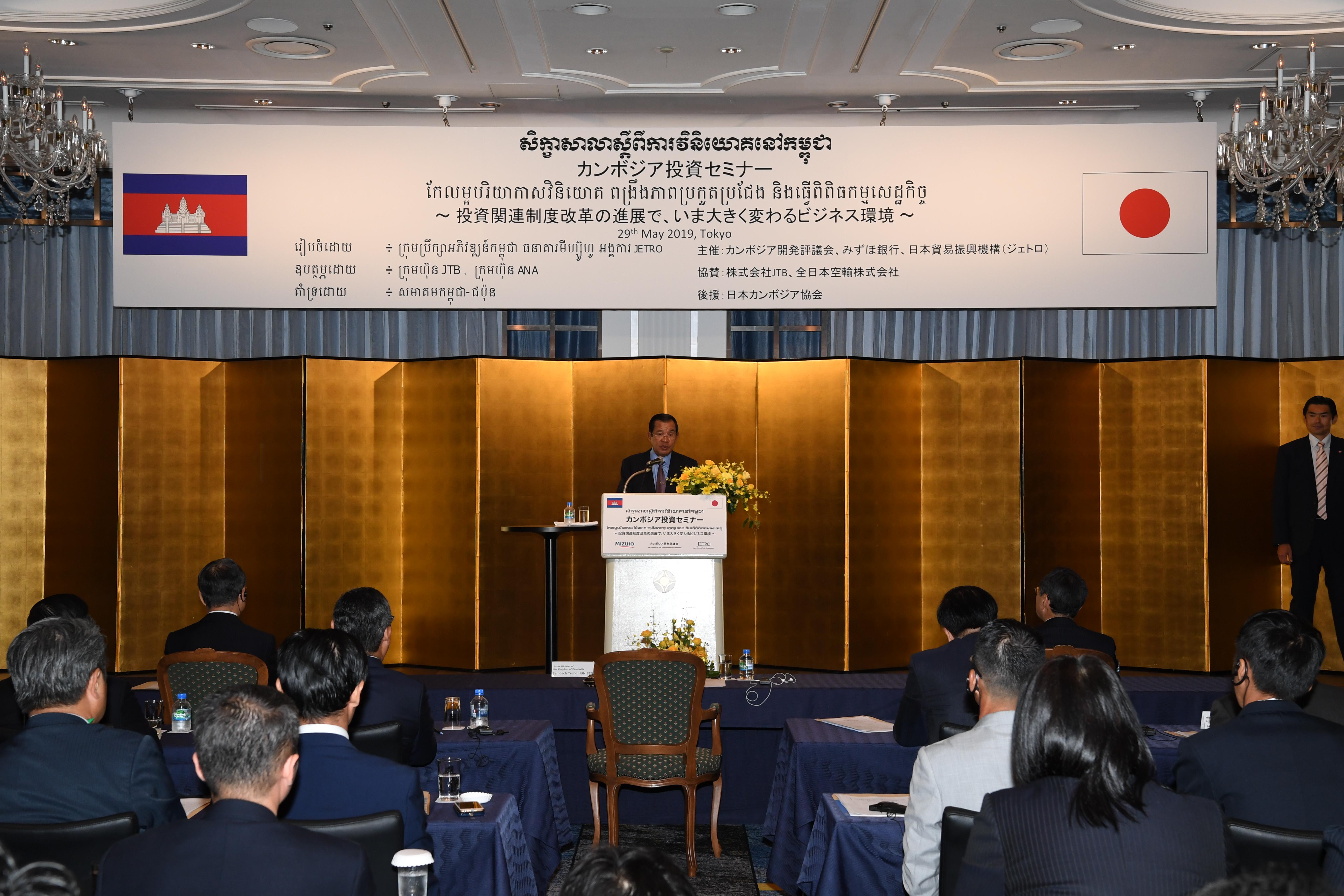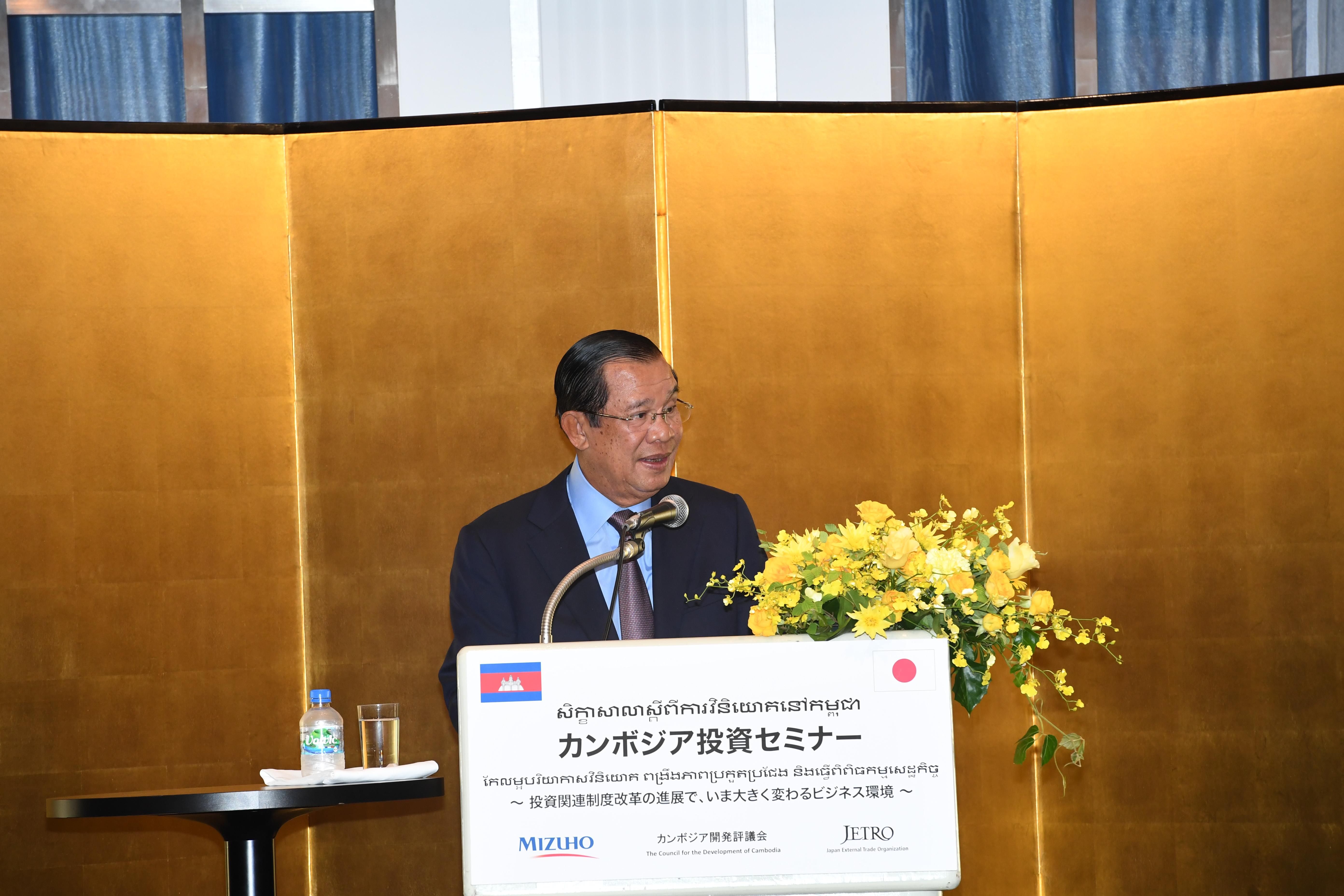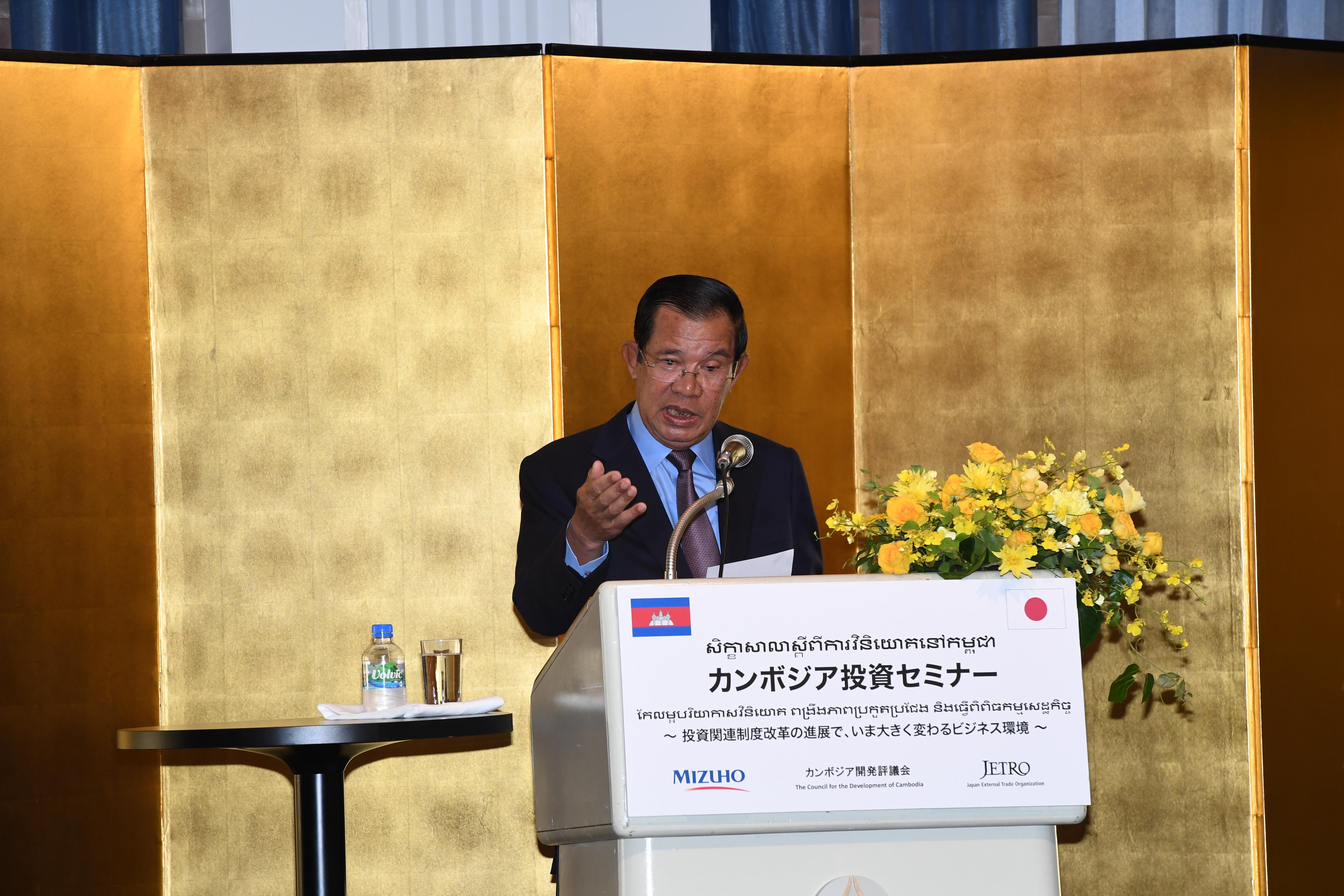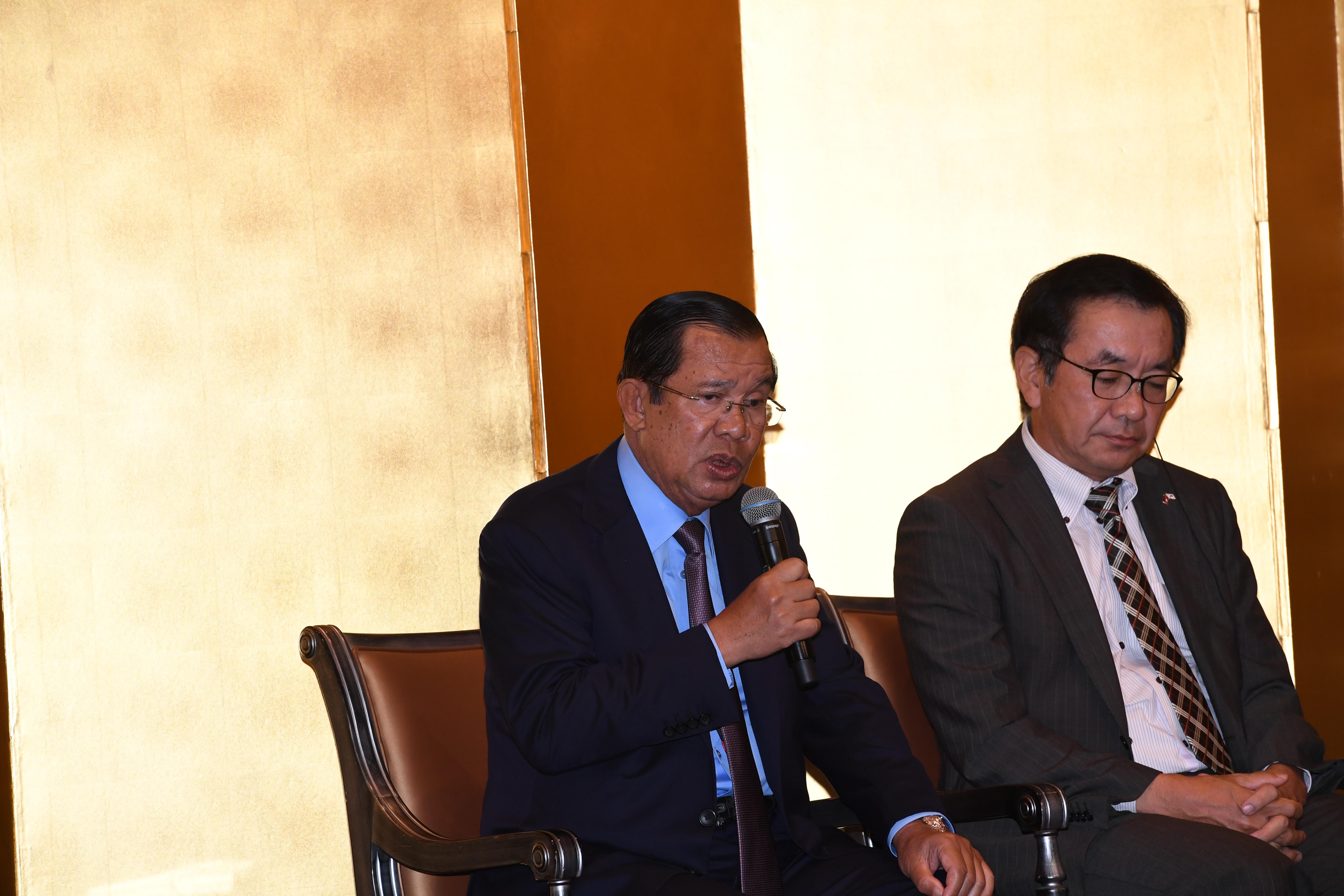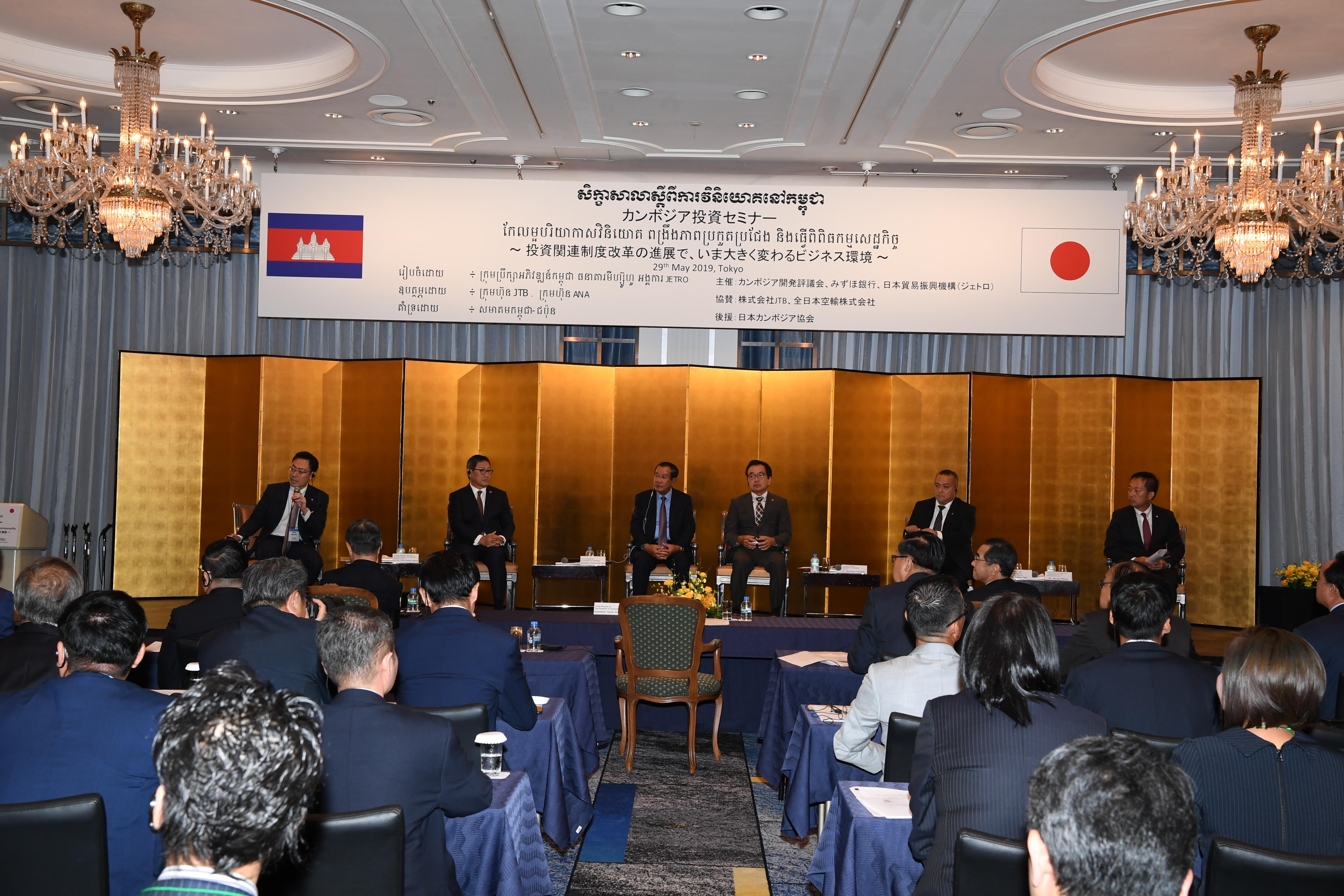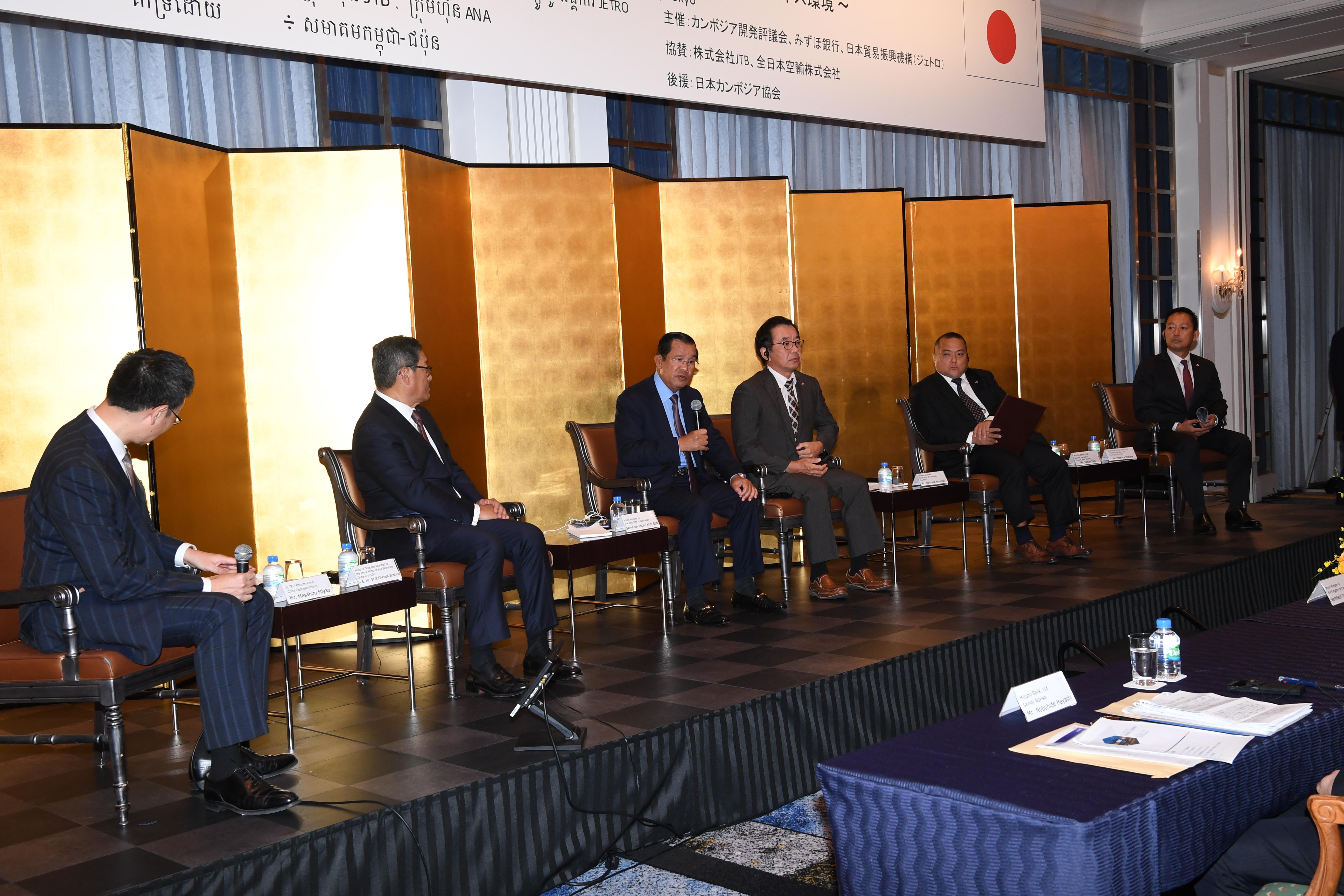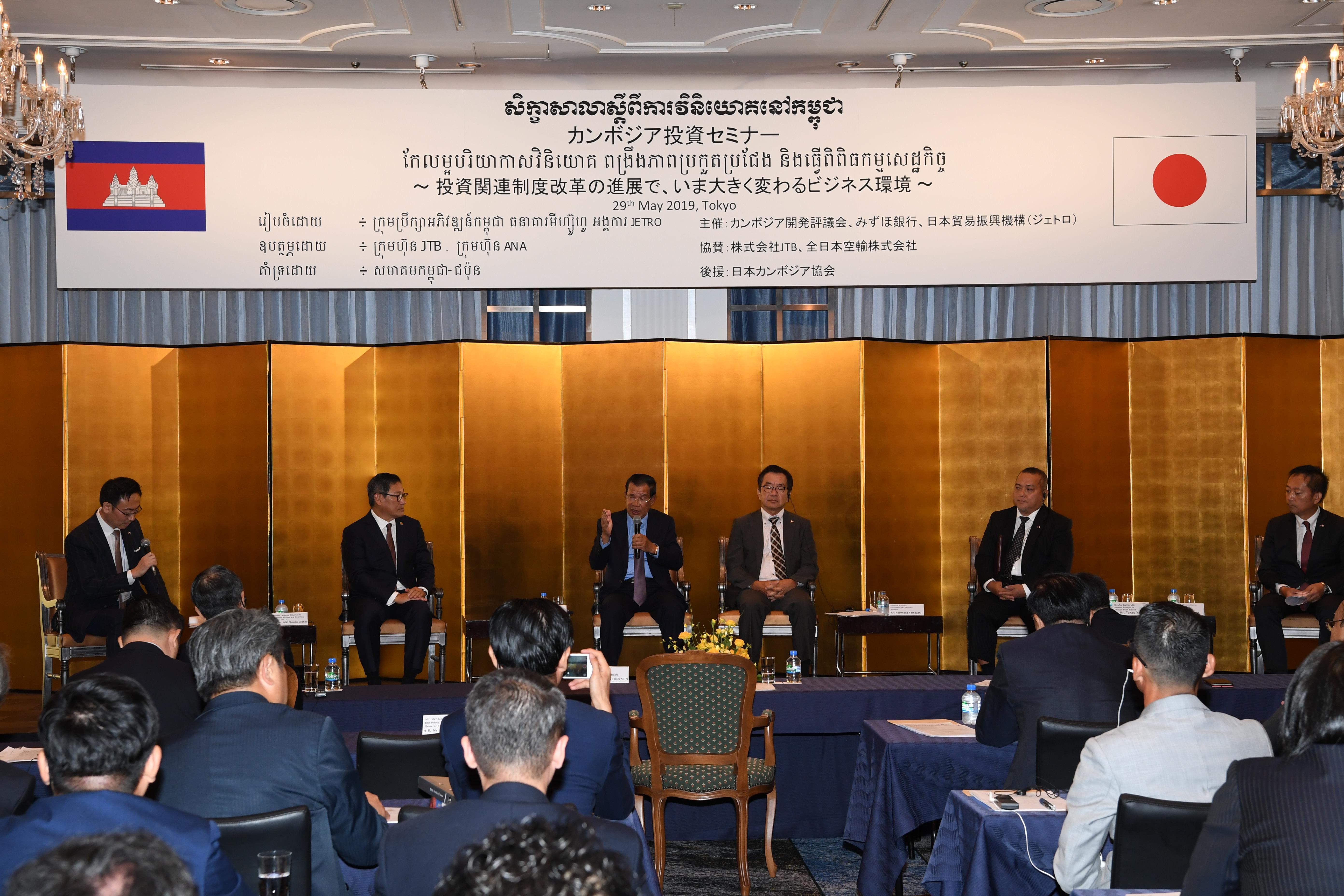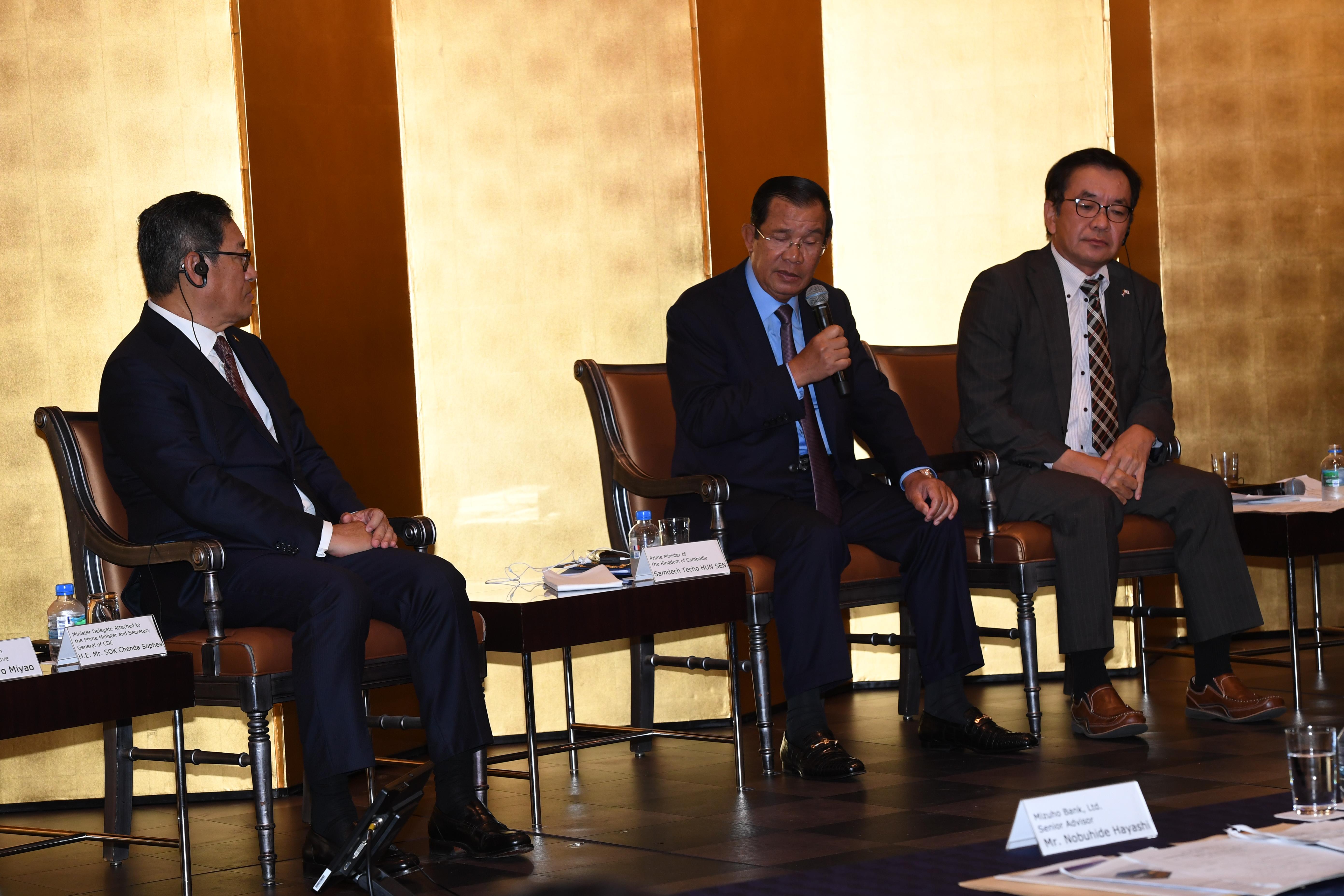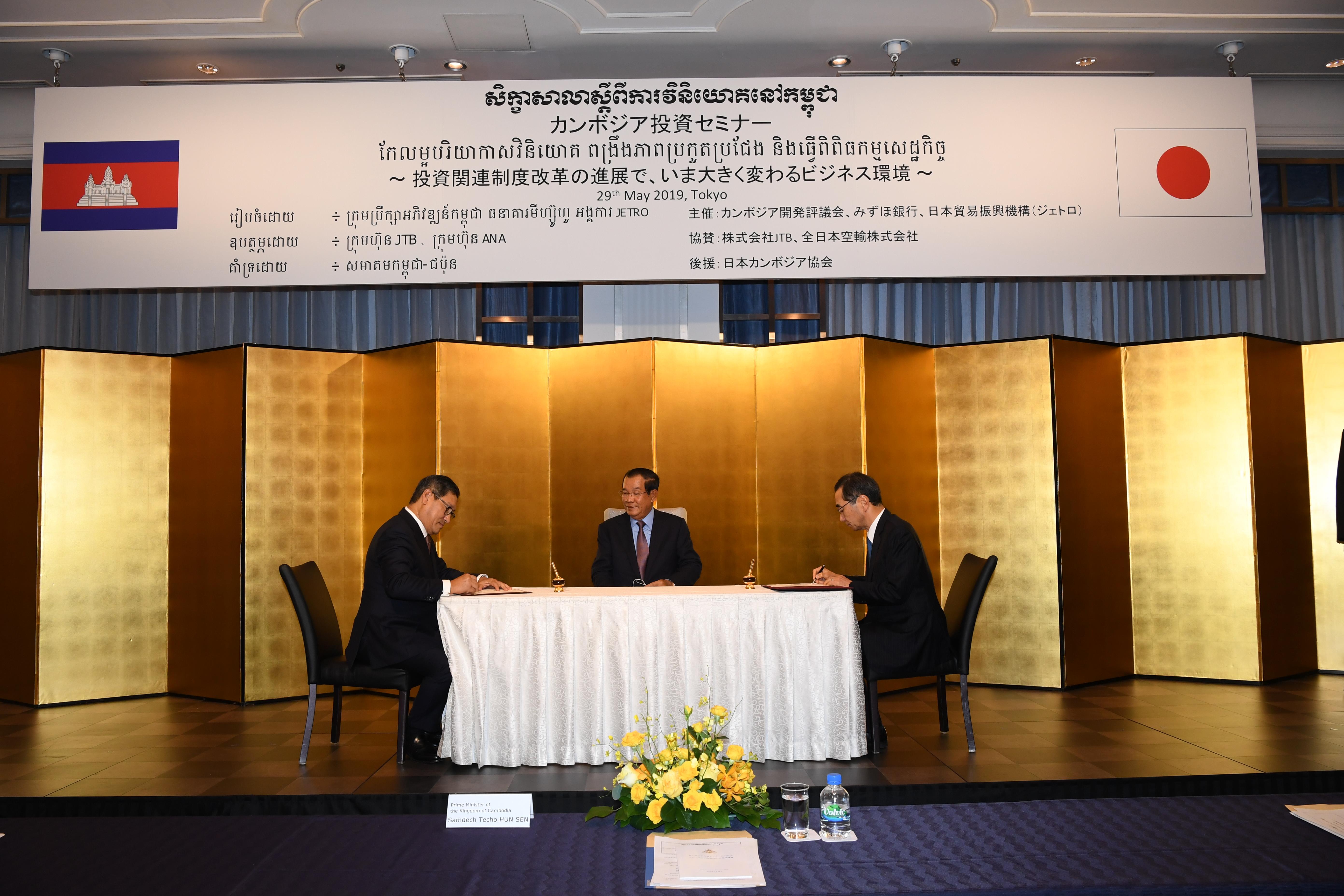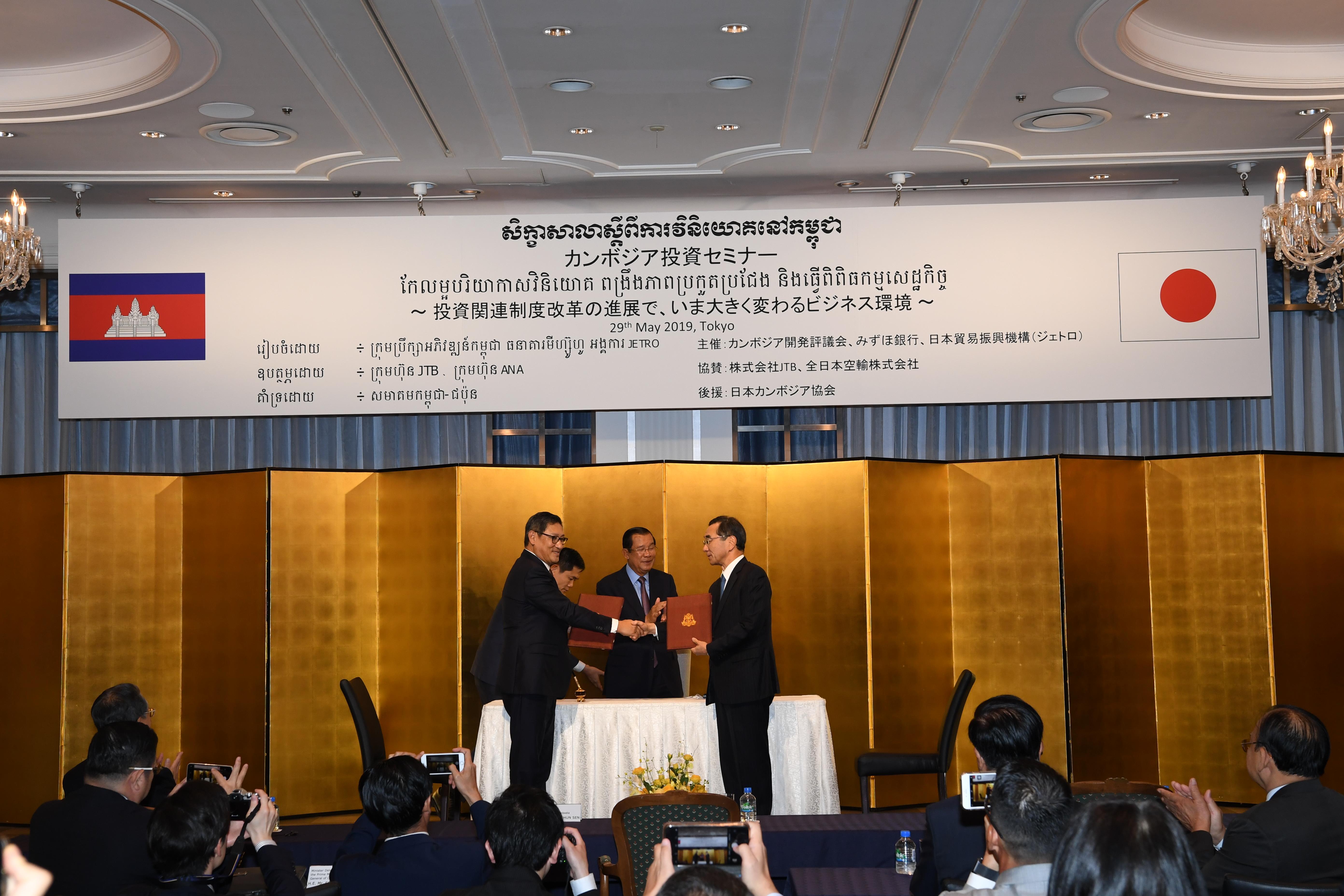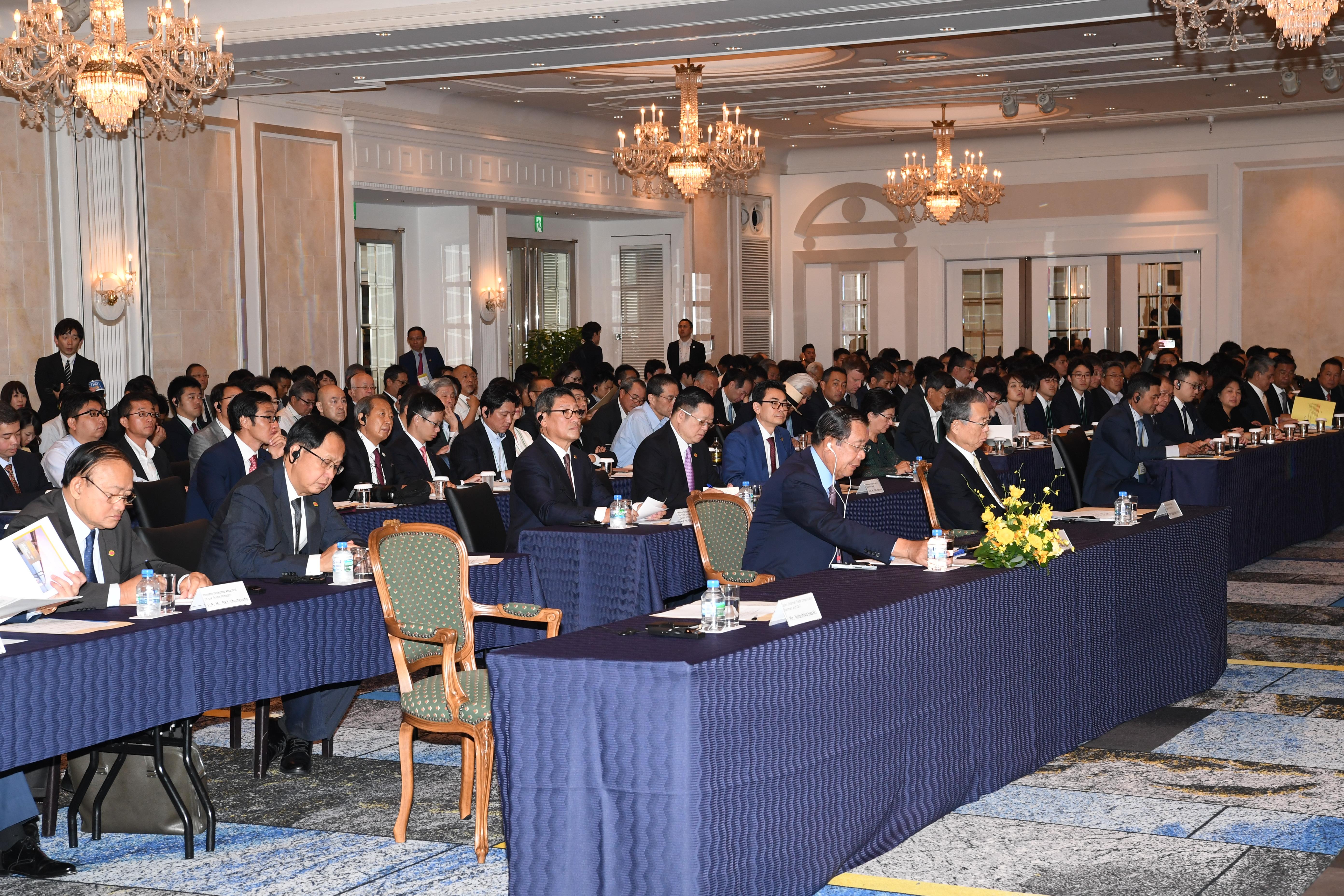Phnom Penh (FN), May 29 – Cambodian Prime Minister Hun Sen introduced to foreign investors, particularly the Japanese, the specific reform measures that will help reduce the cost of doing business by an estimated $400 million a year.
To transform Cambodia into an integral part of regional and global supply chains and to strengthen competitiveness and improve the business and investment climate, I chaired the 18th Government-Private Sector Forum on March 29 2019, the Premier addressed Wednesday at the Cambodia Investment Seminar at the 25th International Conference on the Future of Asia and a series of events in Tokyo, held from 29-31 May 2019.
The Strongman stated that at the 18th forum, we introduced specific reform measures that will help reduce the cost of doing business by an estimated $400 million a year. These measures include (A) improving trade facilitation and reducing business costs; and (B) Law on Investment and Law on Special Economic Zones.
Cambodia has ended the role of the Cambodia Import-Export Inspection and Fraud Repression Directorate-General (CAMCONTROL) and keeping only customs agents to inspect goods at international border gates, special economic zones, and other import and export inspection zones; dissolved Kampuchea Shipping Agency & Brokers (KAMSAB); reduced electricity tariffs and increased power supplies.
Under the Industrial Development Policy, Cambodia has started the first phase of reducing electricity tariffs for industrial consumers by $0.02/ kWh from 2019 and are conducting a feasibility study on further reductions. Cambodia will increase power supplies from various sources including solar energy by around 500MW this year.
The Kingdom has reduced the number of public holidays from 28 to 21 days from next year; and reduced port-handling charges and eliminating scanning requirements for regular containers for companies with good compliance as best traders.
The new Law on Investment and Law on Special Economic Zones, to be finalized by the end of June, aims to improve the modernization and production of domestic industries, strengthen links to regional and global supply chains, promote competitiveness and support economic and social policies. In particular, the Law Investment will provide incentives for activities for which there are currently no incentives such as import substitution and expenses for the well-being of workers as implemented by Japanese companies.
The Kingdom of Cambodia and Japan have also signed an agreement on liberalizing, promoting and protecting investment which has established the Cambodia-Japan Joint Committee Meeting. This has been held 17 times to date and is the only bilateral meeting between representatives of the government and foreign companies, which signifies the attention and care of the Royal Government of Cambodia towards Japanese investors.
Cambodia and Japan are also negotiating an agreement on avoiding double taxation and preventing income tax evasion that will contribute significantly to strengthening, attracting, and supporting Japanese investment in Cambodia.
=FRESH NEWS
